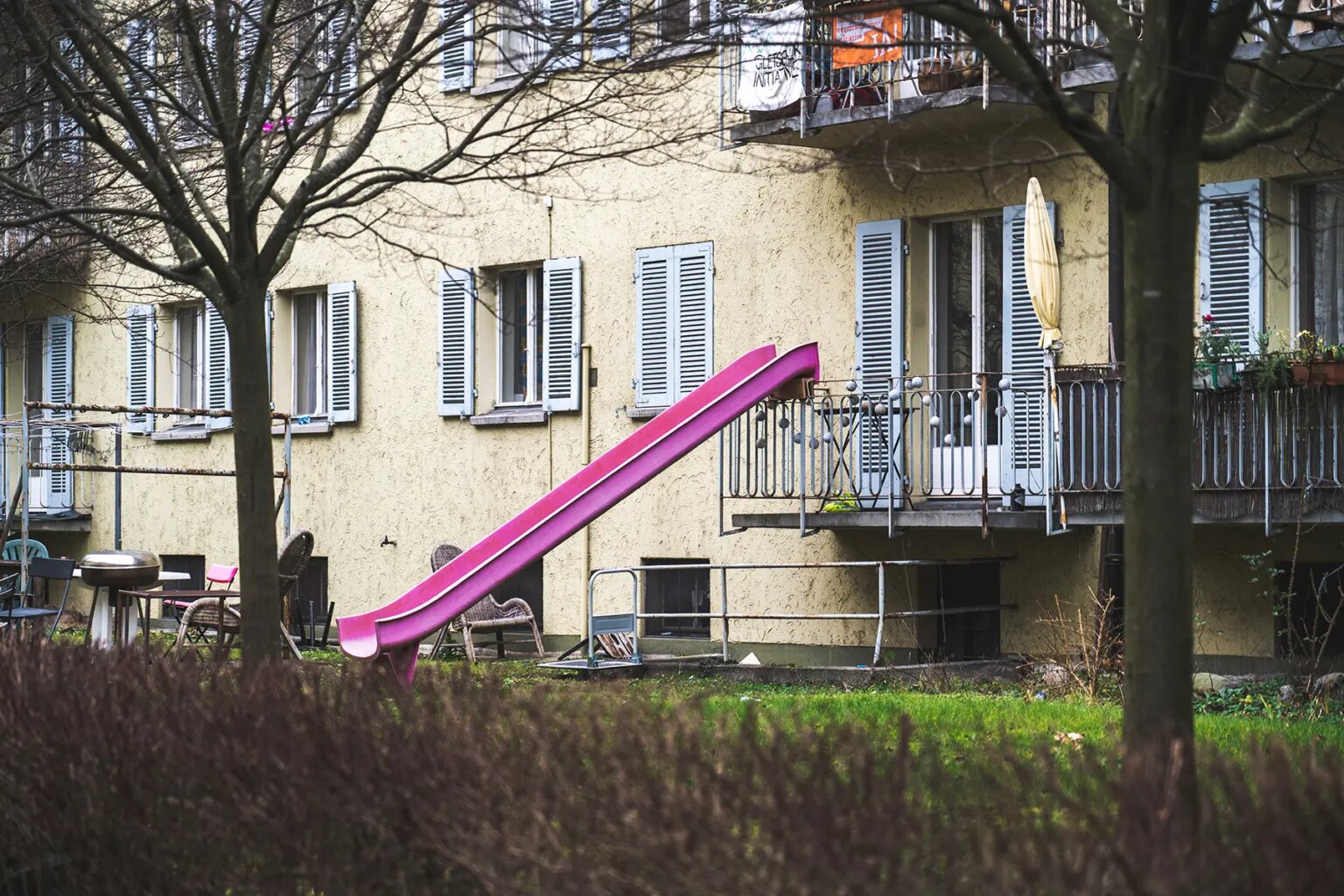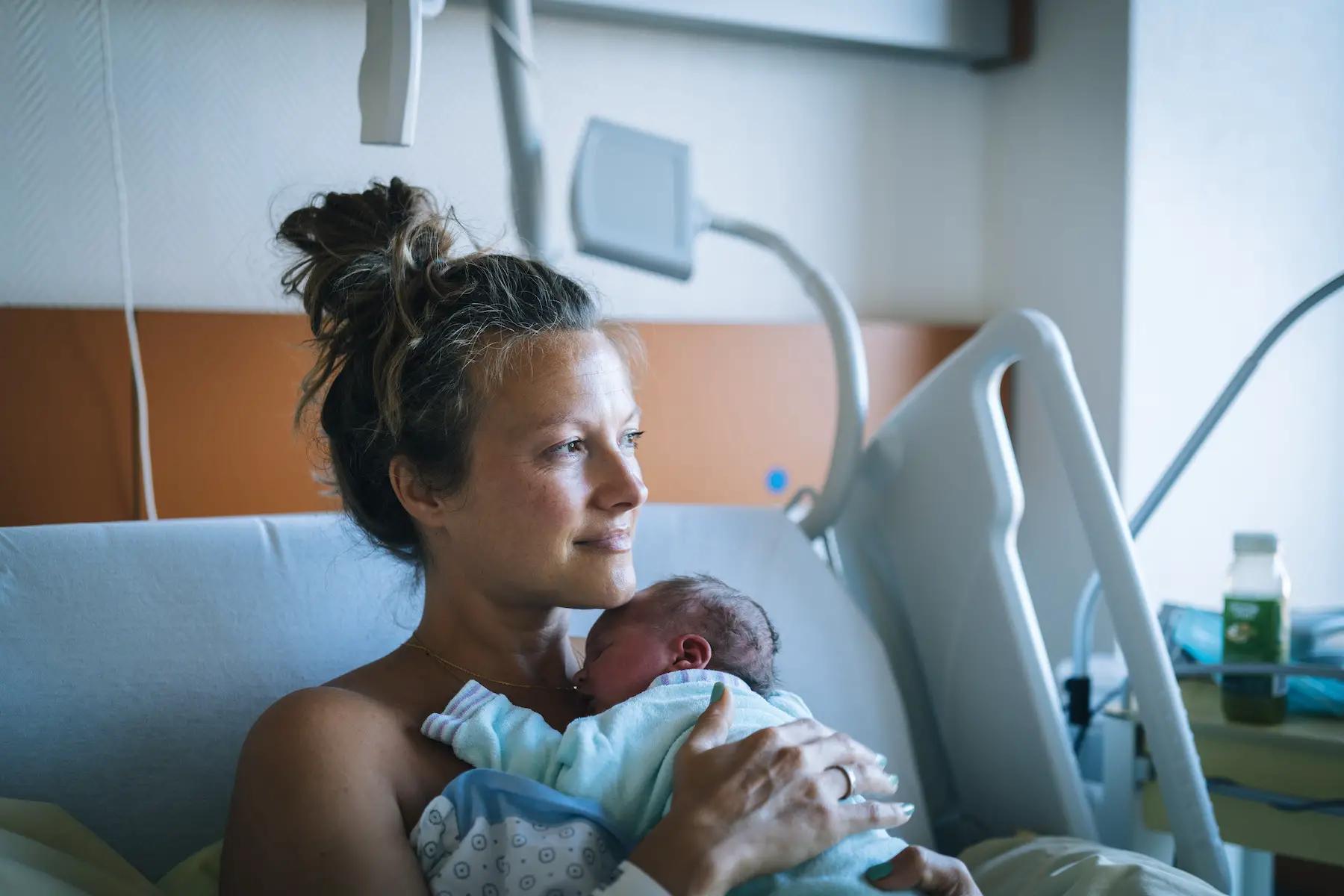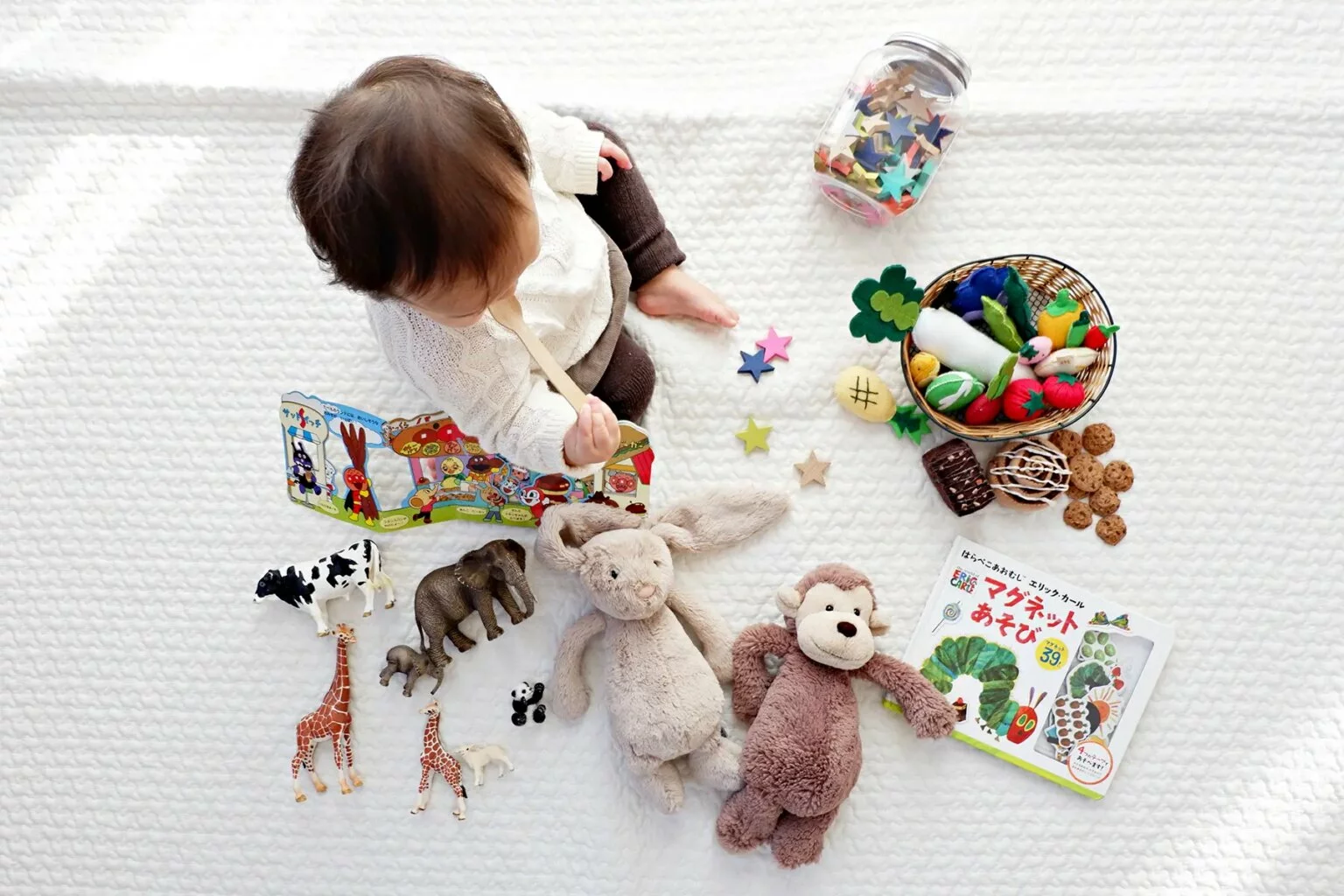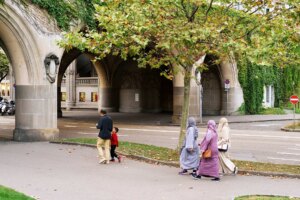There are plenty of options when it comes to childcare in Switzerland; however, it is among the most expensive countries when it comes to arranging care for preschool-age children. If you move to Switzerland with young children and need childcare before they start school, it’s wise to research what’s available in your canton and look at any subsidies that might be on offer.
Here’s all the key information to help you, ranging from types of support available to costs to how to find services in your area.
- Childcare in Switzerland
- Who can access childcare in Switzerland?
- Preschool and daycare in Switzerland
- Childminders in Switzerland
- Nannies in Switzerland
- Au pairs in Switzerland
- Babysitters in Switzerland
- Employer childcare in Switzerland
- Childcare for school-age children in Switzerland
- Childcare in Switzerland during school holidays
- How to find childcare in Switzerland
- Childcare costs in Switzerland
- Child benefits and childcare allowance in Switzerland
- Children’s healthcare in Switzerland
- Becoming a child carer in Switzerland
- Other childcare support available in Switzerland
- Useful resources
ELA Basel
With two locations in Basel, ELA Basel Swiss British School is an international primary school for children 3-12 years. The not-for-profit school offers students the UK’s Early Years Foundation Stage and National Curriculum. In small, dedicated classes, teachers weave German into the English curriculum to help children easily transition to secondary.
Childcare in Switzerland
Childcare in Switzerland for preschool children runs from the end of the mother’s maternity leave until the child starts school at the age of six. The country is a federal system, so each of the 26 Swiss cantons is responsible for childcare and education services. This means that provision varies across the country in terms of what is available, its costs, and whether or not it is compulsory.
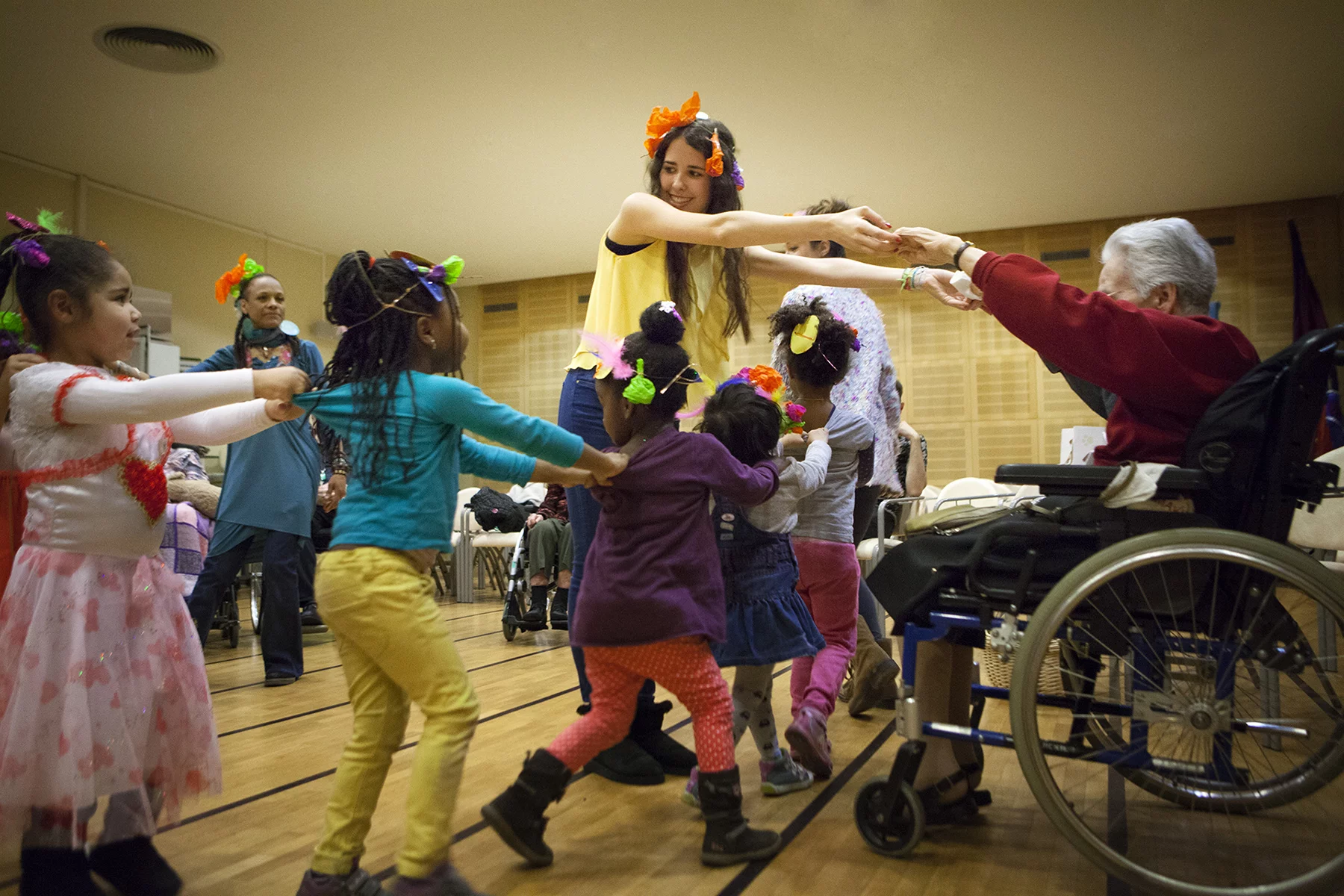
In general, there is a mix of public and private daycare facilities for young children across the cantons. However, spaces at early years public centers are limited and private daycare is expensive. Daycare is generally split into two phases: daycare centers (crèches or krippen) for children aged 0–4; and preschool nurseries (or kindergartens) for children aged 4–6. Enrolment for children under four is voluntary, whereas some cantons have compulsory preschooling for either one or two years for children aged 4–5.
In addition to daycare centers, there are other options such as child-minders and nannies. However, due to the high costs and limited public provision, around 40% of Swiss families rely on informal childcare for between 12–15 hours per week.
A UNICEF report ranked Switzerland 38th out of 41 countries in terms of accessing affordable childcare. Net costs for full-time care for two children amount to around 25% of net family income, the second highest after New Zealand among OECD nations. However, standards are typically high and nursery professionals must have a minimum of master’s-level qualifications.
Parental leave in Switzerland
Parents in Switzerland can take paid parental leave if they have been paying social security contributions for at least nine months and have been working for at least five months prior to the child’s birth. Maternity leave is 14 weeks at 80% of normal earnings, up to a maximum of CHF 196 a day. Mothers can then take an additional two weeks of unpaid leave. Fathers can take up to two weeks of paternity leave at 80% of earnings up to a maximum of CHF 195 a day.
There is no additional parental leave in Switzerland, meaning that it offers well below the average of neighboring EU countries (63.5 weeks for mothers, 7.1 weeks for fathers) in terms of total parental leave entitlements.
Who can access childcare in Switzerland?
Anyone who registers with their local Swiss canton can access free public daycare. However, there are limited places – especially with daycare for under-4s – and most cantons operate on a first-come-first-served basis. Private childcare is available to anyone who can afford to pay for it. There is government funding available to subsidize this, although you will usually need to be a resident who has paid social security contributions to access this.
Preschool and daycare in Switzerland
Crèches and krippen
These are the daycare facilities for very young children in Switzerland up until the age of four. There are some public crèches available but the majority of the provision is in the private sector. Availability varies across the cantons. You can find out about both public and private licensed facilities in your area by contacting your local municipality. Waiting lists can be quite long, and the authorities recommend that expecting parents should begin their search early in pregnancy.
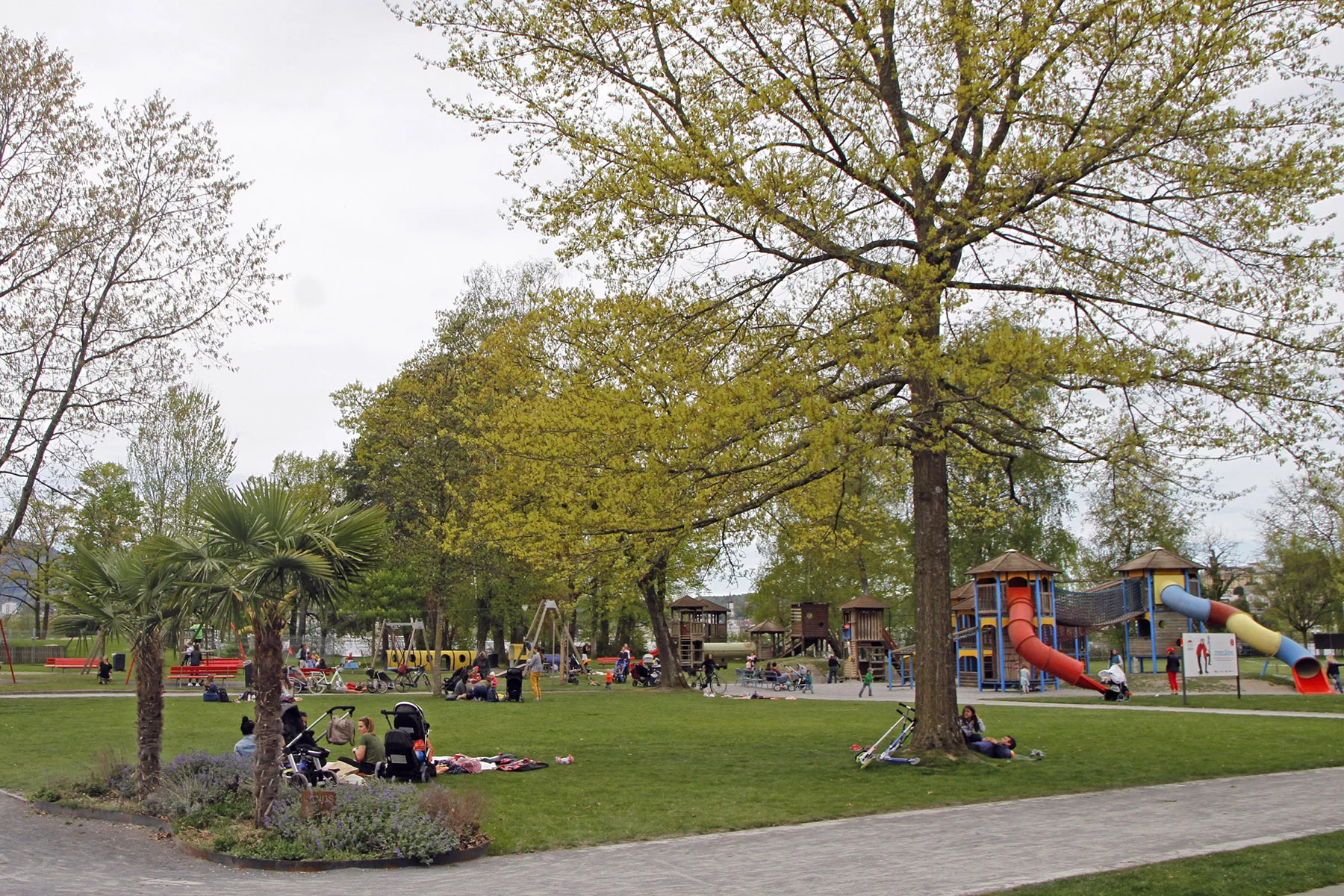
Opening hours tend to vary but centers can be open from 07:00–18:30, Monday to Friday. Childcare for children aged 0–4 in Switzerland isn’t free, although there are some subsidies and allowances available. Public facilities are government-subsidized and cheaper but places are more limited.
You can enroll your child by approaching the crèche directly or by contacting the childcare or early years services in your municipality. Sessions are delivered by qualified play workers and focus on developing children’s cognitive and social skills.
Nurseries and kindergartens
Children in Switzerland attend preschool nurseries from the age of four until they start school at six. Some cantons in Switzerland have made this compulsory for either one or two years. Public nurseries in Switzerland are mostly free, while private institutions charge hefty fees. Places at state-funded preschools are more available than they are for crèches, but there are still shortages in many cantons.
Again, opening times vary across cantons and individual schools. Most public facilities open between 08:30–12:00, with some also opening for a couple of hours in the afternoon. This means that many Swiss parents make alternative arrangements or rely on informal care to cover lunchtime or after-school hours. Private facilities are generally open for longer hours. Some state nurseries allow parents to leave younger children aged 2–4 with them for a few hours a week if needed. Contact your local commune for more information.
Schooling varies across cantons and also according to the different French, German, and Italian traditions. In general, French-speaking and Italian-speaking preschools are more formal and closer to a primary school than German-speaking kindergartens. Class sizes tend to be large, with an average teacher-pupil ratio of 1:18, which is the second-largest amongst European OECD countries after France. There are no formal assessments of pupils, but lessons are likely to include:
- Reading, writing, and mathematics
- Basic language learning
- Arts, music, and sports activities
- Healthy living activities
- Play activities
You can apply for a preschool place directly through the nursery or by contacting the children’s services team of your local commune. Preschools in Switzerland include the bilingual Italian- and German-speaking Il Girasole Basel.
International childcare in Switzerland
For expat parents in Switzerland, international childcare is another option. With a large foreign population and a multicultural society, Switzerland is home to numerous international schools. Many of these schools have preschooling options that enable children to familiarize themselves with their environment before they start primary school.
The advantage of using international childcare is the high level of quality, with smaller classes and wider activity ranges. Additionally, it means that children learn in a diverse, multicultural environment. The downsides are that international childcare is even more expensive and children get fewer chances to interact with local children.
Childminders in Switzerland
Childminding services in Switzerland come in different forms and have different names: daycare families, family crèches (crèches familiales), childminders, and daycare moms (mamans du jour) are some of the main ones. Services provided all amount to the same thing: childcare provided in the home of the provider. Care may be provided by one individual (for example, a daycare mum), both parents, or by a group of childminders.

All childminders in Switzerland are regulated. Although they generally work privately, they must register with the canton’s youth services authority. You should contact your local cantonal authority for details of providers in your area. Care is generally available for children aged up to 12. Hours and exactly what is provided varies between carers; these are usually agreed upon between carer and parent in advance, sometimes on an ad hoc basis.
Parents needing short-term daycare can use childminding services at the parent’s home for as little as two hours at a time.
Nannies in Switzerland
Nannies in Switzerland provide childminding services in the family home. Nanny services often extend beyond childminding to include assistance with childhood education and development, housekeeping tasks, and sometimes nursing. Some families in Switzerland employ live-in nannies who work full-time hours, including evenings and weekends.
Typically, nanny hours are between 07:00–19:00, although some work later. Nannies usually look after children aged up to 12. They work in the private sector, often through agencies specializing in nannying and childminding.
Au pairs in Switzerland
Au pairs are another form of live-in childcare support provided to families in Switzerland. They are usually young students from abroad aged between 18–25 who stay with families for up to two years. During this time, au pairs provide basic childcare and housekeeping in exchange for free board and pocket money that amounts to about CHF 500–700 per month.
Au pairs relocate to a country in order to learn about the culture and language. In Switzerland, au pairs must enroll in a language course (French, German, or Italian, depending on the canton) that consists of 120 hours of learning. Some families pay for the language course as part of their benefits package. Swiss au pairs can work a maximum of 30 hours per week and get at least one full day off per week. The host family acts as the employer and is responsible for arranging social security and health insurance contributions. Non-EU/EFTA au pairs don’t need a visa to come to Switzerland, but they do require a residence permit if staying for more than three months.
Babysitters in Switzerland
If you want a night out or are suddenly called away for something, babysitting is a useful option to cover short-term, ad hoc needs. Parents in Switzerland often use family, friends, or neighbors for this sort of thing, but this may not be an option if you’re new to the country. To that end, you can employ babysitters and there are plenty of agencies in Switzerland that provide babysitting services.
This is a basic and casual form of childcare where the babysitter supervises the child, sometimes performing basic tasks such as preparing meals or putting them to bed. Evening babysitting often consists of nothing more than staying at the home while the children sleep. No formal qualifications or certificates are necessary for babysitters. Agencies can be useful if you need a babysitter on a regular basis, as they perform checks on employees, handle the paperwork, and can provide a replacement if your usual babysitter is unavailable.
Employer childcare in Switzerland
Some private employers offer in-house crèche childcare either as part of their benefits package or at an additional cost. You will usually be informed if this is the case when you start your job. It’s worth asking about, though; some companies are willing to fund childcare even if they don’t provide on-site care themselves.
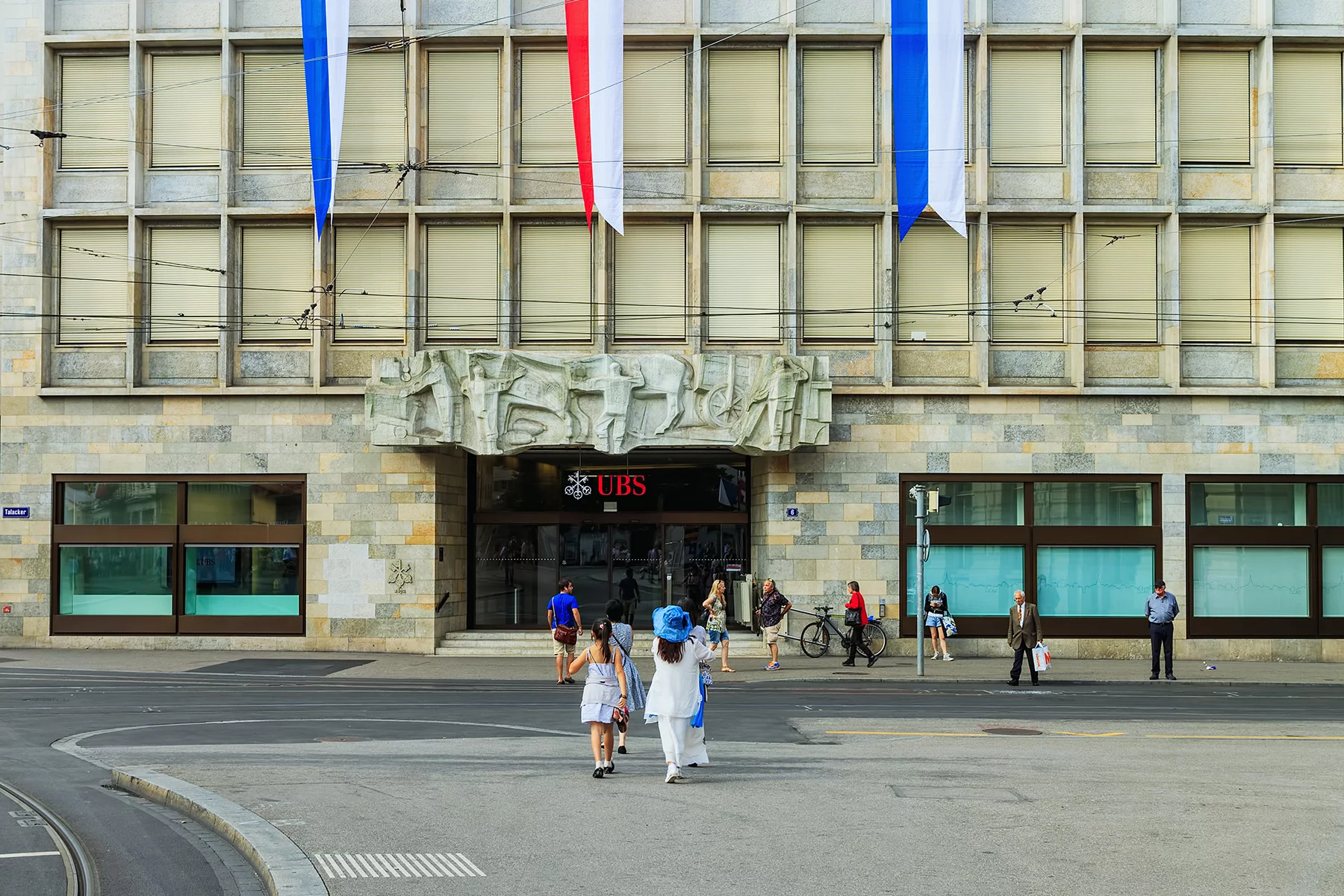
Occasionally, workplace crèches offer places to parents who aren’t employees if they have extra space. Check with your local commune for information on this.
Childcare for school-age children in Switzerland
Out-of-hours care for school-age children in Switzerland varies considerably across the cantons. In some areas, provision is still very limited in state schools, meaning that parents must make their own arrangements if they need early morning, lunchtime, or after-school support. However, things are improving in some cantons such as Zurich, where schools now directly provide breakfast clubs, lunch clubs, and after-school care similar to the German hort model. There is also a plan to provide day-school (tagesschulen) places with all-day activities including homework support and leisure activities to all students by 2025.
Supplementary provision is typically much better in the private sector, particularly at one of the many international schools in Switzerland. Many of these have extensive early morning and after-school activities that mean children are occupied from around 08:00–17:30 (and sometimes even later), although costs are naturally higher.
If your child’s school doesn’t have a sufficient out-of-hours program, you can look for external providers in your region. Your local commune or cantonal authority should have information on local providers. These are usually private organizations that charge fees (for example, the TechSpark Academy, which offers digital learning activities about coding and robotics). Classes run in selected schools but are open to the public for Grade 3 children and above.
Childcare in Switzerland during school holidays
Swiss childcare provision during school holiday periods differs across the cantons. State schools in Switzerland tend to close for the period, as do many preschool facilities. This means that many parents switch to alternative forms such as childminders during these periods. Your local commune can let you know what holiday childcare provision is available.
Many private and international schools in Switzerland run holiday-time activities, although these usually cost extra.
There are also many private providers offering activity-based care, particularly during the summer holidays. These include:
- Holiday programs that offer fun activities and daycare for different ages. Providers include Pro Juventute, which runs holiday programs for children aged 6 to 16, and Profawo, which offers holiday daycare.
- Sports camps such as InterSoccer, which runs summer and Easter camps across Switzerland.
- International summer camps that provide excursions, activities, and learning opportunities. You can check what’s on offer on a website such as World Camps.
Prices and availability for activities vary, so it’s worth making inquiries as soon as possible.
How to find childcare in Switzerland
As childcare provision is largely the responsibility of the Swiss cantons, you should contact your canton or local commune for information on childcare providers in your area. Some cantons have lists or directories where you can search for crèches, kindergartens, and childminders on their websites. You can also search for services nationally on the Kibesuisse (Switzerland’s childcare federation) website.
Other useful websites include:
- Babysitting24 – search for childminders, nannies, and babysitters across Switzerland
- International Au Pair Association – find a licensed au pair agency in Switzerland
- TopNanny – search for nannies in Switzerland
Prices for services can vary greatly, so it’s advisable to research all available options for childcare in your area. You can also find out from your canton whether there is funding available to cover costs (e.g., benefits, tax allowances). If choosing a provider such as a nursery or a childminder, visit the facility or premises before committing to check that you are happy with everything. You can also check to see if daycare facilities have a QualiKita certification, which is the nationwide mark of quality for daycares in Switzerland.
Childcare costs in Switzerland
Childcare in Switzerland is notoriously expensive in comparison to other countries. In fact, Switzerland ranks 37th out of 41 countries in terms of affordable childcare in a recent UNICEF study. This is mainly because childcare for under-4s in Switzerland is largely privatized (although some subsidies exist). According to OECD figures, childcare for two children aged between 2–3 in Switzerland costs around 25% of net family income – the second-most expensive after New Zealand – once benefits and subsidies are taken into account. This reduces to 11% of net income for low-income single-parent families due to subsidies.
Rough gross costs for different forms of childcare in Switzerland are as follows:
- Government-subsidized public crèches: CHF 15–20 per day
- Private crèches: CHF 60–180 per day
- Private kindergartens: CHF 60–150 per day
- Public kindergartens: free but CHF 50–100 a day if you require lunchtime or after-school care
- Childminders: CHF 5–15 per hour
- Nannies: CHF 19–40 per hour; monthly salary for a live-in nanny can be CHF 3,800–6,500
- Au pairs: CHF 700–850 per month
- Babysitters: CHF 7–20 per hour, depending on age and experience
- Out-of-hours school care: CHF 2,000–3,000 per month for before, lunchtime, and after-school care
The Swiss government has plans to tackle the expensive fees paid by parents of under-4s, with proposals including subsidizing between 10–20% of costs for all.
Child benefits and childcare allowance in Switzerland
Although gross childcare fees for two children aged 2–3 in Switzerland are 64% of the average family wage, this reduces to 34% when benefits, subsidies, and allowances are accounted for. In total, Switzerland spends 2.5% of its GDP on family benefits, just below the OECD average.
Childcare costs in Switzerland are reduced through the following ways:
- Family allowance: this is a monthly payment for all families with children aged up to 16 (or up to 25 if in higher education), amounting to at least CHF 200 per month.
- Childcare subsidies: these are for daycare places and are based on income levels. Rates and thresholds vary across the cantons; essentially, the less you earn, the less you pay.
- Tax allowances: you can include up to CHF 10,100 of childcare costs per child (rising to CHF 25,000 in 2023) as deductions on your annual Swiss tax return. Some cantons also allow you to make deductions on cantonal taxes.
- Discounts: some daycare facilities offer discounts for additional children, such as a 20% discount if a second child attends and 30% if a third child attends.
You can find online calculators on some of the cantonal websites telling you how much you will have to pay in childcare based on what you earn.
Children’s healthcare in Switzerland
Switzerland has an insurance-based healthcare system and all children must have a health insurance policy by the time they are three months old. This covers pediatric care, vaccinations, GP visits, and general hospital treatment. You can choose whether your child sees a pediatrician or a family GP in Switzerland as the first point of call. Most children see a pediatrician during their early years.
Switzerland has a high-quality healthcare system for children and the government promotes a preventative approach that includes encouragement of healthy living and routine check-ups. Vaccinations are not mandatory but several are available and recommended.
Becoming a child carer in Switzerland
Each canton is responsible for its childcare provision in Switzerland, so your first point of call should be your local cantonal authority. There will be a department that deals with childcare, early years, or family-related issues that can inform you about the necessary qualifications and registration.
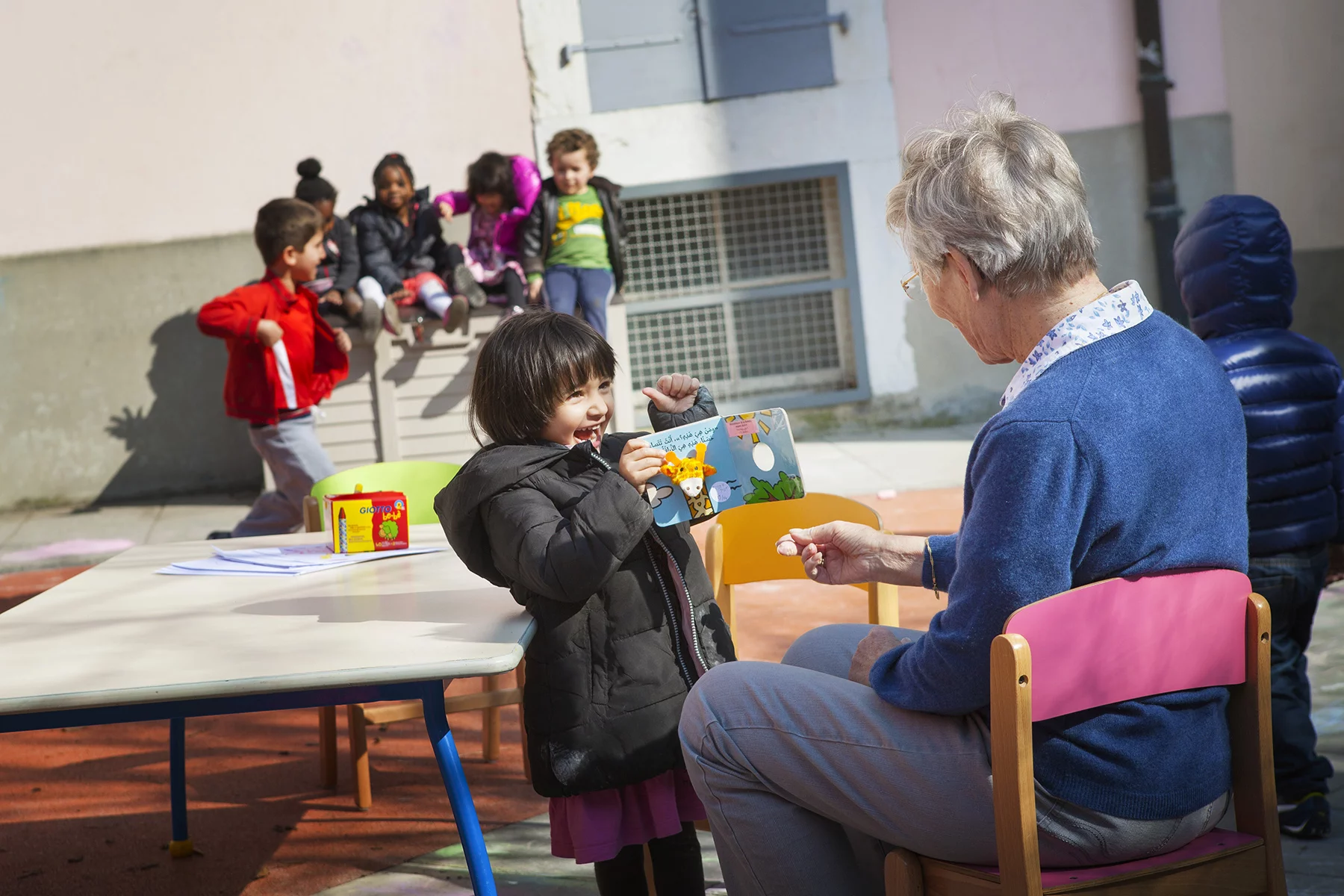
If you set up a daycare facility or become a childminder, you must register your services with your cantonal authority. If you want to set up a crèche or kindergarten, it’s worth taking into account all the requirements for starting a business in Switzerland, including having the right visa if necessary to tax contributions, necessary forms of insurance, and labor laws.
You can also check Kibesuisse, which has a wealth of useful information for childcare professionals including details of childcare training courses.
You can adopt a child in Switzerland as an individual or a married couple as long as you are at least 28 years old and the child is at least 16 years younger than you. The process can take several years and you must prove that you can raise the child in a safe, healthy environment. Each Swiss canton has its own adoption authority if you are interested in adopting a child.
Other childcare support available in Switzerland
Some Swiss cantons offer emergency childcare in the form of emergency short-term daycare or childminding in the event of illness, accident, crisis, or even death. This may be delivered by the cantonal authority itself or by an external provider, such as the Swiss Red Cross or the YMCA.
Costs vary but are typically lower than normal childcare fees, as they are usually subsidized by the cantons. Check with your local authority for information on costs and what’s available.
Useful resources
- ch.ch – information portal for the Swiss Authorities with information on family and childcare issues
- Kibesuisse – Swiss childcare federation with information on a range of topics related to childcare
